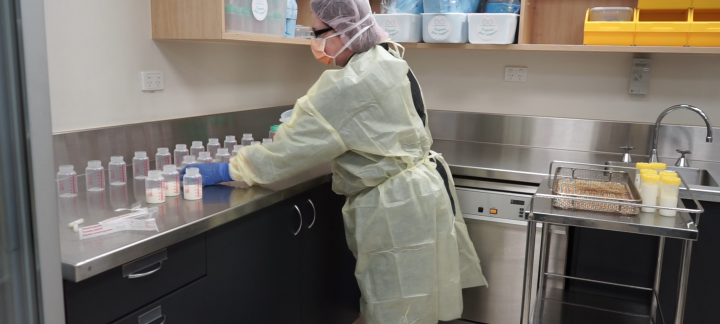What does Pasteurised Donor Milk mean for you and your baby?
The World Health Organisation (WHO)(1) recommends exclusively breastfeeding for the first six months of life. However, for a variety of reasons, some mothers have difficulty producing enough milk to feed their baby.
WHO, American Academy of Paediatrics (AAP)(2) and the European Society for Paediatric Gastroenterology, Hepatology and Nutrition (ESPGHAN) Committee on Nutrition(3) have recommended Pasteurised Donor Milk as the best alternative in situations where the mother’s own milk is unavailable.
Medical research has also demonstrated that providing very preterm babies with Pasteurised Donor Milk, instead of manufactured formula, reduces the risk of some complications associated with feeding because it is easier to digest, coats the gut, protects the gastrointestinal tract, and improves feed tolerance.
Pasteurised Donor Milk is available for babies born before 32 weeks gestation whose birth weight is below 1500 grams and/or are sick and who are receiving care in the Mercy Hospital for Women, Monash Children’s Hospital, The Royal Women’s Hospital or The Royal Children’s Hospital’s Neonatal Intensive Care Unit or Special Care Nursery. Pasteurised Donor Milk is only available while the baby is in the hospital.
The Mercy Health Breastmilk Bank only accepts breastmilk from healthy mothers who have completed a detailed screening process.
All donor breastmilk is pasteurised. Pasteurisation involves heating the breastmilk to a temperature that kills most bacteria and viruses. Samples of breastmilk are taken to test for bacteria before and after pasteurisation. Once pasteurised, the breastmilk is frozen in small amounts until it is needed.
A doctor will discuss with parents if he or she recommends Pasteurised Donor Milk for their baby. As per any medical procedure, receiving Pasteurised Donor Milk is not completely risk-free. However, the risks of receiving Pasteurised Donor Milk are believed to be outweighed in most cases by the benefits.
Parents will be required to sign a consent form before any Pasteurised Donor Milk is given to their baby.
There is no charge for receiving Pasteurised Donor Milk.
Last reviewed August 14, 2019.



